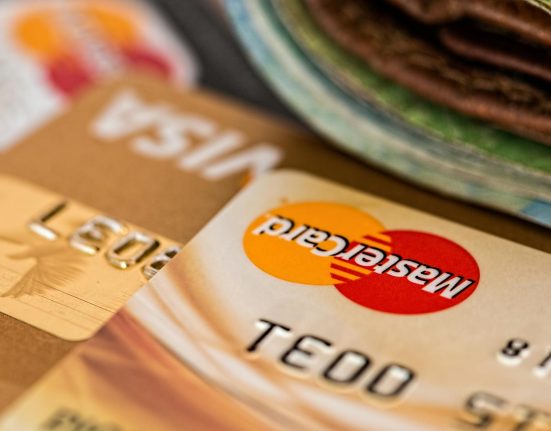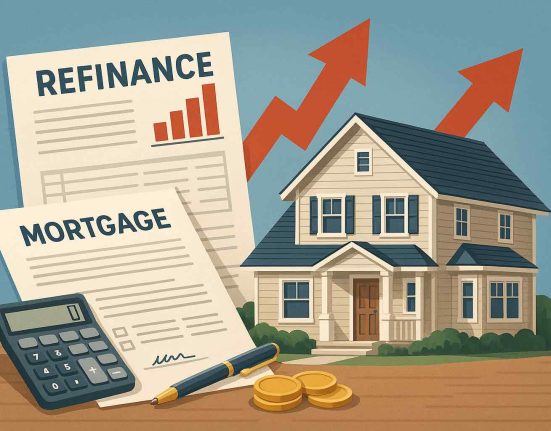Separating needs from wants and saving money as early as possible are among the top money tips that Americans have received, a new poll has shown.
The poll conducted for Newsweek by Talker Research between April 11 and 17 asked 1,000 Americans to share the most-impactful financial advice they have ever been given.
The responses reveal a common thread of caution, planning and prudence, with many pointing to the power of early savings and restraint.
At the start of April, which marks National Financial Literacy Month, President Donald Trump shared a statement saying: “I urge families, communities, schools, and institutions to commit to bolstering their financial knowledge.”
The percentage of adults in the United States with poor financial literacy rose from 20 percent in 2017 to 25 percent in 2023, and the lack of financial literacy cost Americans an estimated $388 billion in the same year, according to a study by Moneyzine.
In Trump’s statement in April, the president noted that “research shows financial literacy leads to greater investments, higher retirement savings, and ultimately more household wealth.”
Below, we highlight some of the best financial advice Americans have received.

Photo Illustration by Newsweek
Start Saving Early
One survey respondent noted: “My father-in-law got me to start saving money at an early age and told me never to touch it till I retire. Now I am the first in my family to be well off, with no debt to pay off.”
Other participants shared this sentiment with practical tips such as “save as little as a dollar a day” and “save every little bit you can, it all adds up,” reinforcing the adage that “a penny saved is a penny earned.”
Doug Carey, a chartered financial analyst (CFA), is the founder and owner of WealthTrace, a retirement and financial planning software. He told Newsweek that the best piece of financial advice he ever received is to “start saving early to my 401(k) [retirement fund] and max it out if possible.”
“The difference between starting savings to a retirement plan at age 25 versus 35 is startling,” Carey noted. For example, if you have a 25-year-old who saves $20,000 per year to her 401(k) plan, she retires at age 65. “If she achieves a 7 percent annual rate of return, she would have $4.3 million when she retires,” Carey said.
“Now let’s say this person instead starts saving at age 35. Incredibly, by waiting 10 years her 401(k) balance drops all the way down to $2 million at retirement,” Carey noted.
He said: “This example just shows the power of compounding at work. The earlier people save, the more of that magical compound interest they get.”
… And Save Regularly
Some respondents emphasized structured saving habits. One said they were told to “save at least $200 every time you get paid,” while a different respondent advised, “spend only 25 percent of your income.”
So, what is the ideal amount we should be saving every month?
“While there are general rules and percentages, average savings rates are unlikely to fit you as an individual,” Jay Zigmont, a certified financial planner, told U.S. News & World Report in March 2023. “Each person’s savings rate should reflect their finances and financial goals,” he said.

iStock / Getty Images Plus
Stay Out of Debt
Becoming debt-free was another common theme, with one respondent saying they were told to “pay off all debt as soon as possible.”
Carey, agreed, telling Newsweek that “another great piece of advice I have gotten is to stay out of debt, except for a mortgage.”
He said: “The more people are in debt, the less they can save. It is debt that delays savings for so many people and they do not get the power of compounding over time, which is the single best to way to ensure a large nest egg at retirement.”
Carey said that another way of looking at it is to “live at or below your means,” adding “I have always lived by the adage—if you can’t pay cash, you can’t afford it.”
Know Your Needs Vs. Wants
Understanding the difference between needs and wants was another common tip.
One person cited the best advice they received was: “Separate your wants and your needs.” Another said: “Before you spend any money, ask yourself ‘do I really need this?'”
When it comes to impulse spending, particularly on clothes, one participant said they were told to do a simple mental check, adding, “If you are debating buying a piece of clothing, just ask if you’d wear it for a day per dollar.” So, a $20 item would translate to 20 days.
Have More Than One Source of Income
According to the U.S. Bureau of Labor Statistics, over 8.5 million people aged 20 and older were reported to have more than one job in January 2025.
Diversifying income was also seen as a key to financial health. “Always have multiple incomes,” said one poll participant.
Another added: “If you have two incomes, live off one and bank and invest the other.”
… And Your Own Bank Account When Married
Financial independence within relationships was another tip mentioned. One respondent shared: “When you are married, always have a checking account in your own name in case of tough times.”
True Tamplin, who is a certified educator in personal finance (CEPF) and the founder of Finance Strategists, notes that joint bank accounts in marriage “can act as a catalyst for transparent conversations around money.”
However, Tamplin also warns that “financial disagreements are one of the leading causes of marital strife” and “one partner’s frivolous spending or the other’s overly conservative approach might lead to conflicts” when couples have a shared account.
Focus on What You Can Control
For managing financial stress, one poll participant offered a broader perspective. The respondent said: “One of the best pieces of financial advice I’ve ever received is ‘focus on what you can control—cut expenses, increase your emergency fund, and don’t panic.'”
The respondent continued: “During tough times, it’s easy to feel overwhelmed, but this advice helped me stay grounded. It reminded me to track every dollar, prioritize needs over wants, and build a cushion for the future—even if it was just a little at a time. Small, consistent steps really do add up, and staying calm can make all the difference when things feel uncertain.”
Remember That Money Goes Quickly
Another response highlighted a more-sobering realization, saying: “Not really advice but I did have an old boss tell me that no matter how much money you make it always finds somewhere to go.”
The respondent continued: “I really noticed that throughout the years, even though I’m making more money, it’s almost like I don’t have any extra because it just finds places to go.”

iStock / Getty Images Plus
Do you have a personal finance question or dilemma to share? Let us know via life@newsweek.com and your story could be featured on Newsweek.







